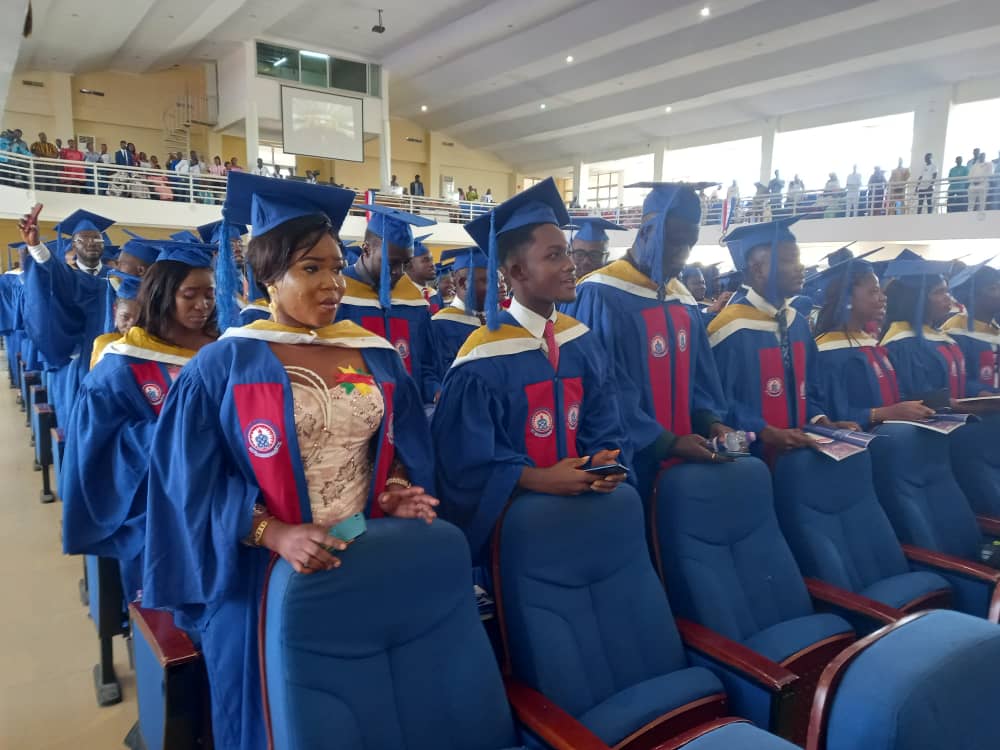By J. K. Nabary
Winneba (C/R). Jan. 28, GNA-Neenyi Ghartey VII, Chancellor of the University of Education, Winneba (UEW), has advocated the strengthening of youth-focused policies that promote quality education, vocational training, and entrepreneurship to empower the next generation to contribute their quota to national development.
He stated that government policies must facilitate the collaboration of educational institutions with industries, to align curricula with market demands, and help avert potential threats like the current economic challenges and unemployment, sweeping through Africa, which warranted immediate attention.
Neenyi Ghartey who is also the Effutu Oma Odefe (Paramount Chief of Effutu Traditional Area), made the call when he addressed the first session of the 28th Congregation of the UEW, which commenced on January 22 and climaxed on Saturday, January 27, at Winneba.
More than 15,000 students from Business, Education, Vocational Education, Technical Education, Applied Science and Mathematics, Education and Communication departments graduated.
The rest are Science Education, Education and General Studies, Environment and Health Education, Foreign Languages Education, Ghanaian Languages, School of Communication and Media Studies, Education Studies and School of Business, Social Science Education, Science Education, Creative Arts and School of Graduates studies.

The Chancellor stated that strengthening youth-focused policies will equip the workforce with relevant skills, especially in emerging sectors like technology and green industries, to bridge the skills gap and increase employment.
There was the need for the government to also launch targeted and time-bound employment initiatives that focused on labour-intensive sectors such as agriculture and manufacturing, he stated.
According to him, this could provide immediate relief to the unemployed while fuelling economic growth along with revamping dedicated programmes to equip young people.
It should provide training, mentorship, and funds to support the development of the next generation of job creators.
“By supporting existing downturns due to external shocks, strengthening vulnerable sectors, and encouraging innovation, the government can safeguard jobs and promote long-term sustainability,” he indicated.
Neenyi Ghartey VII expressed the need for the government to accelerate the transformation of the digital economy to leverage its potential to generate jobs and transform traditional industries.
He noted that it was crucial to revolutionalise and establish vigorous social safety nets to cushion the impact of economic challenges on vulnerable populations, saying targeted assistance programmes could ensure that basic needs were met while maintaining social stability.
The government must enhance transparency in its governance spending and resource allocation and the citizens must hold public officials accountable for their actions and ensure efficient use of resources to rebuild public trust.
He stated that if these swift and resolute measures were taken, it would demonstrate the government’s commitment to address the pressing economic and unemployment concerns of Ghana.
He told the graduates that their education had armed them with an inimitable set of skills and knowledge which could be harnessed to drive positive change and foster economic growth.
“Joblessness is not just a challenge, it is an opportunity for novelty and transformation, hence the need to embrace your role as a graduate, by adopting a proactive mindset rather than waiting for the perfect job to come your way, consider becoming a job originator,” he stated.
He advised them to further build their capacities to enhance their skills to keep them adaptable in the face of the rapidly evolving job landscapes.
“Remember that economic growth should align with ethical and sustainable practice and as graduates, your actions will impact not only on the economy but also the societal well-being.”
He therefore urged them to strive to contribute positively, while upholding ethical standards when working, he added.
GNA